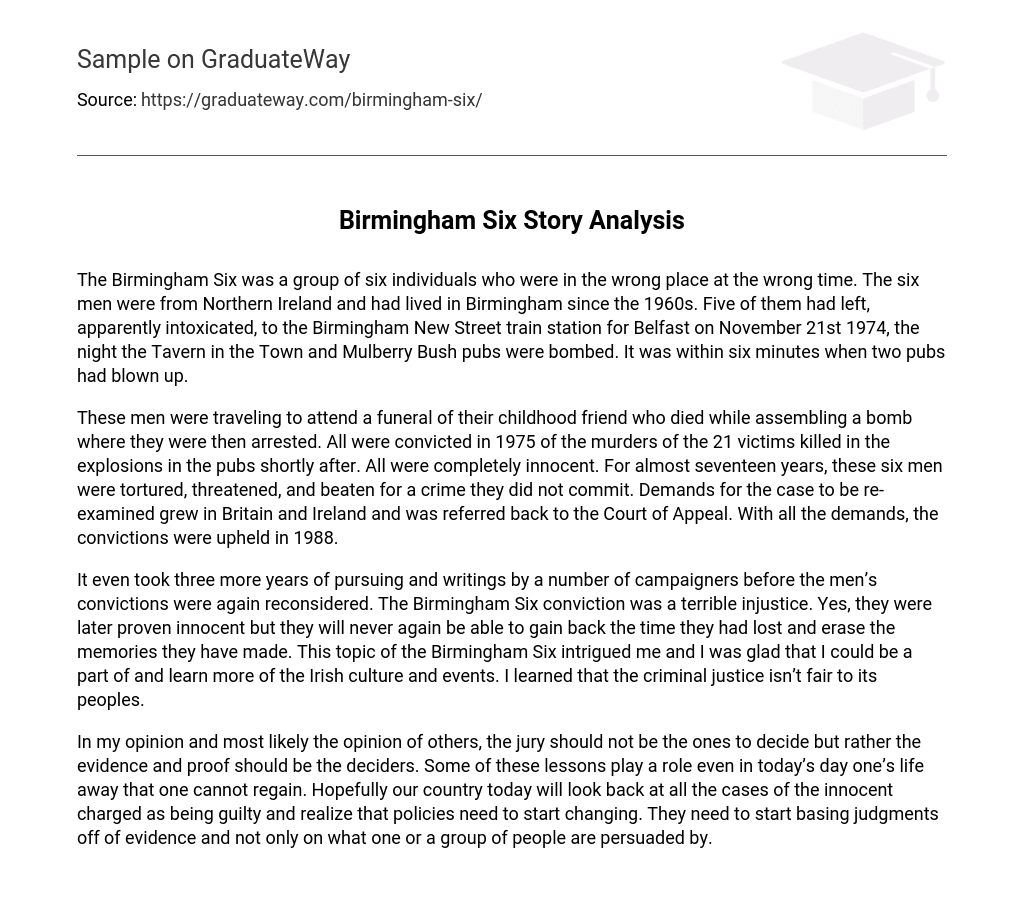The Birmingham Six, a group of six individuals from Northern Ireland, found themselves in an unfortunate situation. These men had been residing in Birmingham since the 1960s. On November 21st, 1974, during the bombings at the Tavern in the Town and Mulberry Bush pubs, five of them (who seemed intoxicated) journeyed from Birmingham New Street train station to Belfast. The bombings occurred within a span of six minutes.
In 1975, six men were falsely convicted of the bombings at pubs which claimed the lives of 21 individuals. The truth was that they had gone to attend the funeral of their childhood friend who tragically died while constructing a bomb. Despite being innocent, they suffered through almost seventeen years of torture, threats, and beatings. The demand for a reevaluation of their case grew in both Britain and Ireland, leading to its referral back to the Court of Appeal. Nevertheless, despite widespread appeals for reconsideration, their convictions were ultimately upheld in 1988.
Following three years of unrelenting pursuit and advocacy by countless activists, the convictions of the Birmingham Six were ultimately reviewed. The unjust sentencing of these individuals constituted a serious miscarriage of justice, and although they were eventually exonerated, they can never reclaim the time lost or erase the agonizing memories endured. This matter pertaining to the Birmingham Six captivated my interest and provided an opportunity for me to delve into Irish culture and historical occurrences, which I deeply valued. It became evident to me that the criminal justice system fails to guarantee equity for all segments of society.
It is widely believed, including my own opinion and that of others, that the jury should not hold decision-making authority. The paramount importance lies in basing decisions solely on evidence and proof. These teachings remain applicable to our present lives and carry irreversible consequences. It is hoped that our nation will contemplate past instances where innocent individuals were unjustly convicted and acknowledge the necessity for policy reforms. Verdicts ought to be founded upon evidence rather than being swayed by an individual or group.





